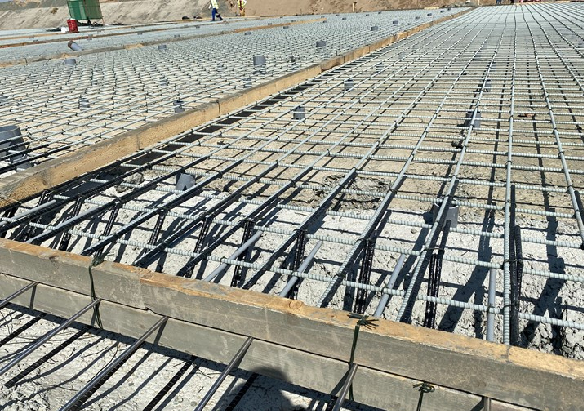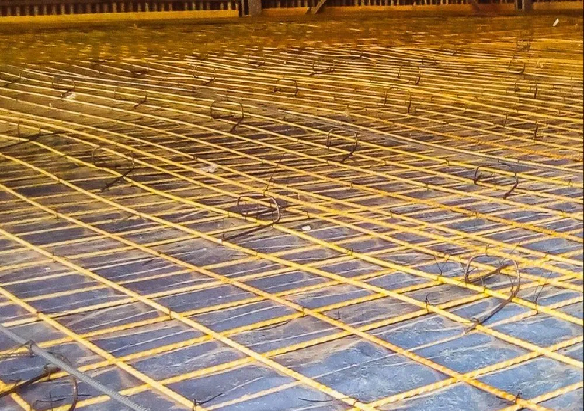


A foundation slab is a flat surface, usually cast into the ground, providing a solid, level surface for the construction of the structure above. The foundation slab places or transfers construction loads to the surface. The thickness of the base slab depends on construction loads, soil conditions and local climate.
Soil conditions: Slab foundations can provide a solid foundation when soil conditions are not good, such as unstable or expensive soil.
Flooding or dampness: Slab foundations are used to protect buildings from flooding or dampness.
Temperature Management: The foundation slab helps keep the house warm in cold weather and cool in hot weather.
GFRP rebars are additional materials and one of the best materials. GFRP rebar is an alternative to steel rebar. It has the advantages of lightness, corrosion resistance and high strength. GFRP rebar is an environmentally friendly rebar.

Industrial floors refer to floors in factories, warehouses, distribution centers and other locations. Indoor floors must be able to withstand heavy loads, frequent traffic, chemicals and other harsh conditions.
Floors are especially suitable for lip resistance, chemical resistance, damage resistance, thermal shock resistance, electrical insulation, etc. to meet the requirements of business. Available in various designs with different features.
Heavy Loading: Floors, machinery, equipment and vehicles as well as products, equipment, etc. It must be able to withstand heavy loads resulting from movements.
Durable: Indoor floors must be able to withstand constant traffic, chemicals, oil and harsh conditions.
Anti-slip: Floors need to have good traction to reduce the risk of slips, trips and falls.
Chemical Resistance: Some floors require chemical resistance to withstand chemicals such as acids, alkalis and solvents.